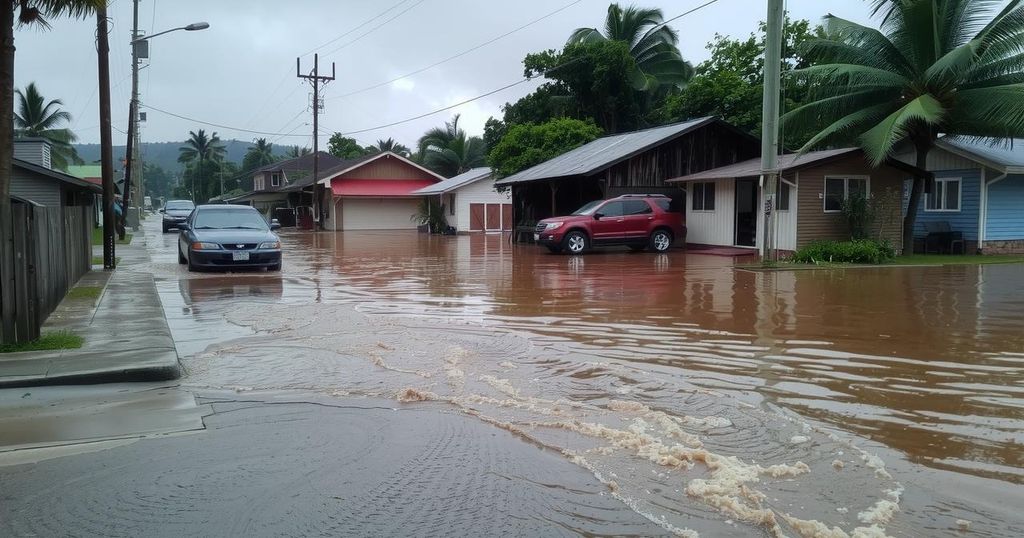World news
ASIA, BELIZE, BOULDER, BRAZIL, CARIBBEAN SEA, COLORADO, CUBA, EMERGENCY RESPONSE, EVACUATIONS, HONDURAS, KEVIN TRENBERTH, MEXICO, NATIONAL CENTER FOR ATMOSPHERIC RESEARCH, NATURAL DISASTER, NATURAL DISASTERS, NORTH AMERICA, PHILIPPINES, QUI, QUINTANA ROO, RAFAEL, SARA, SOUTH AMERICA, UNITED STATES, XI, XIOMARA CASTRO
Stella Nguyen
0 Comments
Tropical Storm Sara: Extensive Flooding Displaces Thousands in Honduras
Tropical Storm Sara has isolated over 1,700 communities in Honduras, causing significant flooding and infrastructure damage. With one confirmed death and over 110,000 individuals affected, the storm has prompted evacuations. As it weakens over Mexico, experts warn of the exacerbating role of climate change on such weather phenomena.
Tropical Storm Sara has resulted in significant flooding in Honduras, cutting off more than 1,700 villages across the nation. This slow-moving storm unleashed torrential rains over northern Honduras for four consecutive days, leading to swollen rivers and devastating infrastructure damage. Currently, officials have confirmed one fatality while more than 110,000 individuals are reported to be affected. As the storm progresses toward southern Mexico, it is anticipated to weaken further.
Since its formation in the Caribbean Sea, Sara has dropped excessive rainfall, with some regions experiencing up to 500mm (19.7 inches), resulting in the destruction of nine bridges and damage to an additional nineteen. Several highways have also become unusable due to landslides triggered by the deluge. In response to the impending threat, President Xiomara Castro urged residents living in flood-prone areas to seek higher ground, prompting thousands to evacuate.
The impacts of this storm are compounded by recent tropical activity in the region, including Hurricane Rafael, which caused a nationwide blackout in Cuba. Meteorologists attribute the increasing frequency and intensity of such storms to high sea surface temperatures, and emphasize the role of human-induced climate change in amplifying these severe weather events. Experts, such as Kevin Trenberth from the National Center for Atmospheric Research, have raised alarm over the enhanced risk of disastrous outcomes as climate change continues to intensify natural weather phenomena.
The occurrence of storms and hurricanes is a natural process within the climatic patterns of the Atlantic Ocean. However, the current Atlantic hurricane season has seen an alarming increase in storm activity, notably with Sara being the 18th named storm and the third this month. The ongoing impacts of climate change, specifically elevated sea temperatures, have been linked to the increasing severity and frequency of tropical storms, leading scientists and meteorologists to call for attentive consideration of these events as they pose threats to vulnerable regions like Central America. The socio-economic implications are profound, affecting public safety, infrastructure, and resilient recovery efforts.
In conclusion, Tropical Storm Sara has caused extensive damage in Honduras, isolating numerous communities and affecting vital infrastructure. As the storm subsides and moves towards Mexico, the ongoing challenges posed by climate change loom large, emphasizing the necessity for improved preparedness and resilience in the face of natural disasters. The information provided by expert sources highlights the critical intersection between climate change and storm activity, calling for urgent action to mitigate risks associated with severe weather events.
Original Source: www.bbc.co.uk




Post Comment